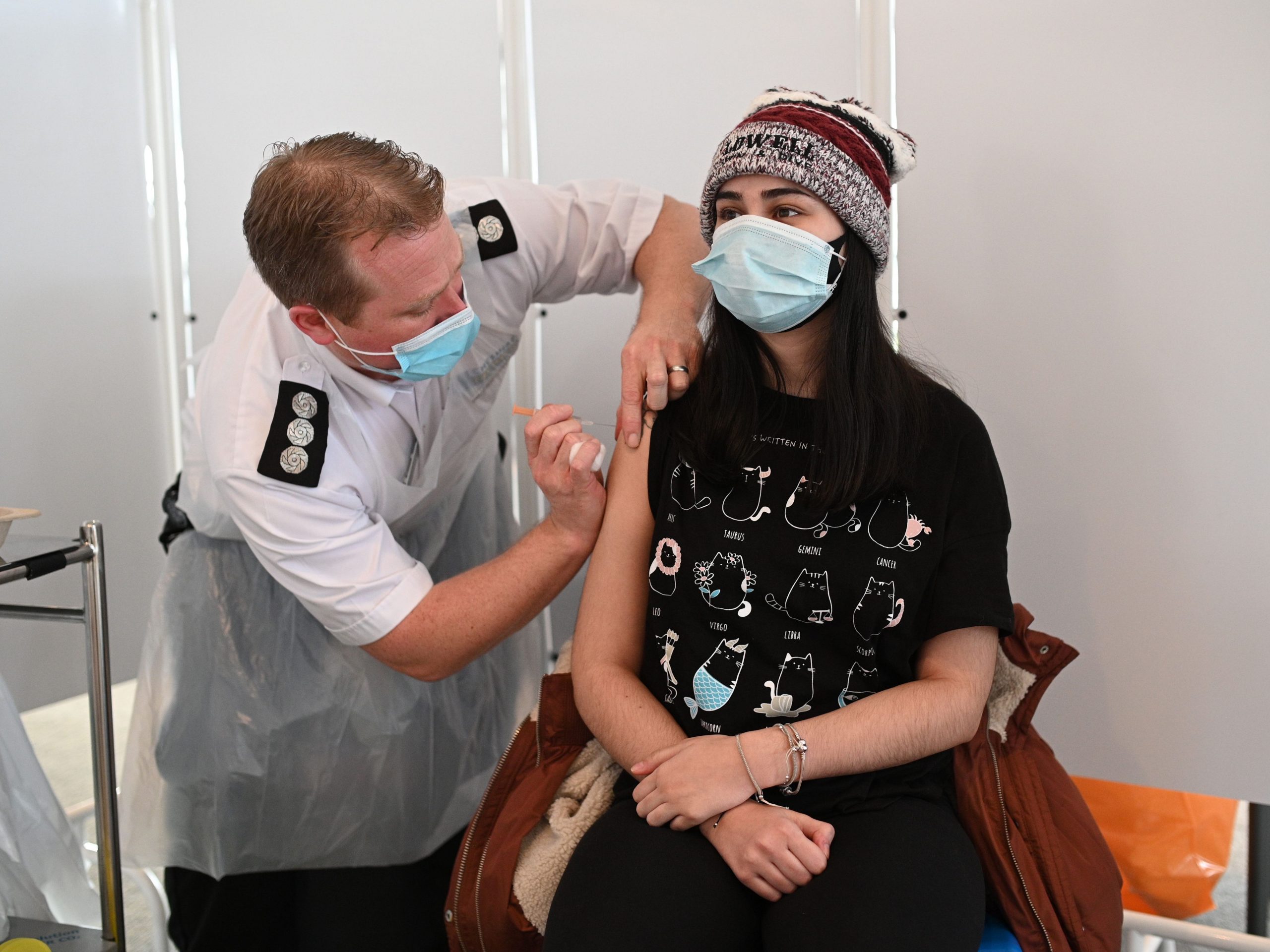
Oli Scarff/AFP via Getty Images
- The benefits of AstraZeneca's COVID-19 vaccine outweighs its risks, the European Medicines Agency said.
- "There is no evidence to restrict the use of the vaccine in any population," it said Wednesday.
- The EMA's investigation into reports of rare side effects it ongoing and will conclude next week.
- See more stories on Insider's business page.
The European regulator said on Wednesday that there was "no evidence" to restrict the use of the COVID-19 vaccine made by AstraZeneca and Oxford University in "any population."
Countries including Canada, Germany, France, and Italy have put the shot on hold for younger people as a precaution while regulators investigate reports of unusual blood clots, particularly in younger women.
"The benefits of the AstraZeneca vaccine in preventing COVID-19, with its associated risk of hospitalization and death, outweigh the risks of side effects," the European Medicines Agency said in a press briefing Wednesday. It's a view that's consistent with what the regulator has said in recent weeks.
The EMA said that an expert panel – including hematologists, neurologists and epidemiologists – had not been able to identify any specific risk factors including age, gender, or previous medical disorder that predisposed people to "these very rare events."
Emer Cooke, EMA's executive director, said that a "causal link" between rare blood disorders and AstraZeneca's vaccine was not proven, but it was "possible" and analysis was ongoing.
The EMA will aim to reach a "scientific conclusion next week," she said.
Cooke said that the EMA provides information that countries need to make decisions about vaccine rollouts, but national vaccine campaigns differ according to need - the number of infections, vaccine availability and pressure on hospitals, for example.
Read more: COVID-19 Vaccine Tracker: AstraZeneca's shot proves safe and effective and is headed to the FDA
Determining whether there's a link between blood clots and AstraZeneca's shot
There had been 62 cases worldwide of a rare blood clot in the brain, reported to the EMA and 9.2 million people had been vaccinated with AstraZeneca's shot as of March 22, which amounted to 1 case in 100,000, the regulator said.
The EMA said that the blood clot in the brain called central venous sinus thrombosis (CVST) were reported mostly in women under 60 years old. But it was difficult to "disentangle" whether the vaccine was causing the clots or not. CVST can occur without the presence of vaccines. It's more likely to occur to women aged between 30 to 45, and it's more likely to occur in women than men, the agency said.
The regulator also acknowledged that the relatively high number of young women who reported CVST could be related to the vaccine's rollout - young healthcare workers were one of the early priority groups, and this group includes a high proportion of women. And when the shot was first authorized in the EU, Germany, France, and Italy did not give the shot to people over 65, so more younger people could have received AstraZeneca's shot.
There have been a number of theories discussed in the scientific community around the blood clots. For example, Canadian officials on Monday referred to a phenomenon called Vaccine-Induced Prothrombotic Immune Thrombocytopenia. In this disorder, antibodies "activate" platelets and cause blood clots to form, the National Advisory Committee on Immunization said.
The EMA said that it at looked at these theories but they weren't proven.
